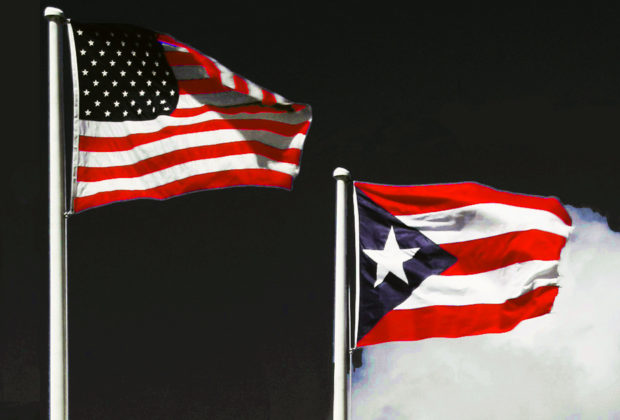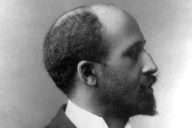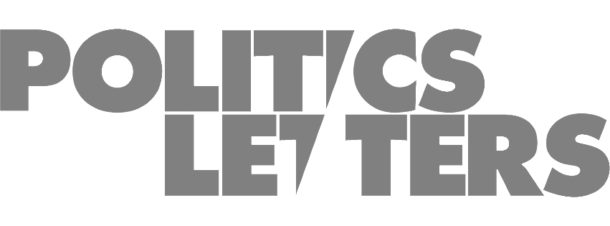By FRANCES NEGRÓN-MUNTANER
Last June 11, the government of Puerto Rico held what turned out to be not only the island’s fifth political status consultation but also its most ill-fated one since the U.S. takeover of 1898. Termed the “Plebiscite for the Immediate Decolonization of Puerto Rico,” the process led by the pro-statehood New Progressive Party seemingly included every option to make a clear decision: namely, statehood, territorial status, and free association/independence.
Yet, clarity belied complexity. Disrupted by a boycott from all other political parties, the consultation attracted only 23% of 2.2 million registered voters, the lowest turnout in a Puerto Rico electoral event since 1967. Equally important, while the statehood path garnered 97.2% of the vote, up from a contested 61% in the prior 2012 referendum, the total of statehood voters actually decreased and was significantly less than a few years ago: 502,801 votes versus 834,191. That the still competitive territorial option obtained under 7,000 votes and a smaller percentage than the free association/independence alternative—1.3% and 1.5% respectively—further suggests that something went awry.
But even if the plebiscite did not pay off for statehooders, nor spoke “the people’s” will, it revealed much.
Locally, the process was quite efficient in registering discontent. By staying home or going to the beach, well over a million voters refused to cast a ballot, thereby protesting against a range of perceived wrongs. Among these was the idea of spending $8 million in a non-binding plebiscite amidst a massive $120 billion government debt; the current administration’s support for steep budget cuts to address the crisis; the ballot’s definition of the island’s status as “territorial” contrary to the wishes of its supporters; and, for pro-independence groups, the fact that maintaining a colonial status was on the list at all. Some groups also rejected the plebiscite route itself as colonial and favored different resolution measures such as a constituent assembly.
In the U.S., public attention largely focused on the question of whether Puerto Rico would become a state. In story after story, Puerto Ricans were portrayed as the putative protagonists of a political melodrama that is finally entertaining since it now has stakes for Americans. Fittingly, news organizations covered the plebiscite as a colorful “contest” with winners and losers.
This treatment continues an accelerating trend of incorporating the territories into U.S. mass culture. Highly visible examples include late night comedy programs such as Last Week Tonight with John Oliver dedicating entire segments to the subject, and classic game shows like Who Wants to be a Millionaire upping the ante with questions like, “Which of these is not a territory of the United States?” and “As residents of Pago Pago can tell you, what’s the only place within American territory where people aren’t automatically granted U.S. citizenship at birth?” Either way, the territories are a growing part of what makes the U.S. funny or bewildering.
Yet while the territorial predicament has proven entertaining, the reasons why status plebiscites are a futile exercise and a racist spectacle remain largely unexamined. In this act, many Puerto Rican commentators play a complicated role. Opposing groups do their best to ridicule and bring down their rivals rather than build common ground toward the goal of broad decolonization. For Puerto Rico, a result of this dangerous game is that the U.S. appears as the rational political actor simply waiting for confused islanders to make up their mind, thereby confirming enduring stereotypes of Puerto Rican irresponsibility and American generosity.
One critical step toward a more fruitful political resolution is to challenge the very notion that Puerto Ricans will decide their colonial status through a plebiscite. Presidential candidates are conveniently one of the biggest promoters of this idea. Even if President Trump did not say much about this consultation, during the 2016 campaign candidate Trump stated that Puerto Ricans had a right to make “a choice” regarding their relationship to the U.S. When President Obama traveled to the island on a fundraising excursion on June 14, 2011, almost exactly six years before the current plebiscite, he went further: “when the people of Puerto Rico make a clear decision, my administration will stand by you.” Trump and Obama are not unique: This is what nearly every president since Gerald Ford has told Puerto Ricans.
Although to some ears the “you decide” line sounds like deep respect for Puerto Rican self-determination, it is not. Instead, it is a tactic aimed at extracting votes and funds from poor communities without federal representation during primaries, and later from Latinxs in the United States. Once the cash and ballots are in, elected officials avoid any decolonizing action as island Puerto Ricans cannot vote and have few effective mechanisms to hold them accountable. Ultimately, those politicians have no problem telling Puerto Ricans that they can “decide” since U.S. law—backed by the military, media, and public opinion—has established that they cannot. Or as a White House statement clearly put it last June 13: “This referendum is nonbinding and only Congress can change Puerto Rico’s status.”
“You decide” similarly camouflages that in nearly 120 years, Congress has failed to sponsor a binding consultation while the federal government often intervenes in local efforts. The 2017 plebiscite was no exception. The Department of Justice (DOJ) rejected the first ballot language proposed in April primarily because it did not include the colonial or territorial option favored by one of the leading parties, the Popular Democratic Party (PPD). The DOJ also objected to differentiating independence from free association, and to the claim that statehood was the only alternative that guaranteed U.S. citizenship, stating that existing law provided “an unconditional statutory right to birthright citizenship.”
Equally significant, even after Puerto Rico’s government added the territorial option and adjusted the remaining terms as directed, the Department of Justice requested more time to review the ballot’s content, which it never approved. Although one can reasonably argue that the government of Puerto Rico proceeded rashly and unilaterally, and that the PPD’s perspective cannot be ignored, it is no less accurate that U.S. action—and inaction—are primarily aimed at supporting the status quo. Waiting for “approval” would have changed nothing.
The “you choose, we control” dance also renders natural and normal that the U.S. Congress has a right to “possess” island polities and treat its members as colonial subjects in perpetuity. Whereas mainstream sympathetic journalists and television personalities at times describe the legal set-up as “weird,” “strange,” or “complicated,” U.S. sovereignty over the territories is rarely questioned, if ever. In addition, while it is often repeated that “unincorporated” citizens cannot vote for president or have a voting delegation in Congress, much less noted is that this state of affairs violates the 14th amendment guaranteeing equal protection under the law for U.S. citizens, and that it does not rest on the legal consent of the governed.
Moreover, in a nation where racism is often seen as its original and unresolved sin, the territorial status fully accepts racial inferiority as the foundation of law. Produced through a series of decisions known as the Insular Cases (1901-1922), the Supreme Court’s main reasoning in developing the “unincorporated territory” doctrine was that territorial citizens were unfit to self-govern or be part of the union due to their condition as “uncivilized,” “savage tribes,” and “alien races, differing from us in religion, customs, laws…and modes of thought.” Not surprisingly, the court which ruled on these cases was nearly the same that reached the 1896 “separate but equal” decision in Plessy v. Ferguson upholding state racial segregation laws. Yet, as Judge Juan R. Torruella summed up, the Insular Cases were “a more stringent version of the Plessy doctrine: the newly conquered lands were to be treated not only separately, but also unequally.”
Despite the repeal of other explicitly racist legislation such as Jim Crow, the Insular Cases remain the law of the land and are still routinely cited to decide new cases, including in the nation’s highest court. Its language and framework likewise continue to permeate political discourse and public opinion. A 2017 resolution by the Houston Young Republicans objecting to Puerto Rico becoming the 51st state provides an updated example: “being so separated by geography, language, law, culture, and governing custom…theirs is a political culture separate and distinct.” Some comments posted in USA Today after the plebiscite similarly converged in even more blunt terms: “What if most Americans reject the idea of adopting this poor, dysfunctional, Spanish-speaking island as a state?”
In the end, the “you decide” rhetoric thinly masks the fact that, whereas Puerto Rico has been an American colony since 1898 and Puerto Ricans both endure and fight the consequences every day, it is the U.S. that has the colonial “problem.” If indeed the U.S. is democratic and sovereign, there should be nothing stopping the country from ending its status as a colonial power. Americans can decide to start their own decolonization by immediately abolishing the unincorporated territory doctrine; annulling Congressional plenary powers over all territorial political communities; and enacting policies, practices, and legislation aimed to repay more than a century worth of extracted wealth.
Perhaps then, the question of who needs to “decide,” and what, may at last mean something.
***
Frances Negrón-Muntaner is a scholar, writer, filmmaker, curator, and professor at Columbia University. Her latest book is the collection Sovereign Acts: Contesting Colonialism Across Indigenous Nations and Latinx America, which will be published by University of Arizona Press in November.







No Comments